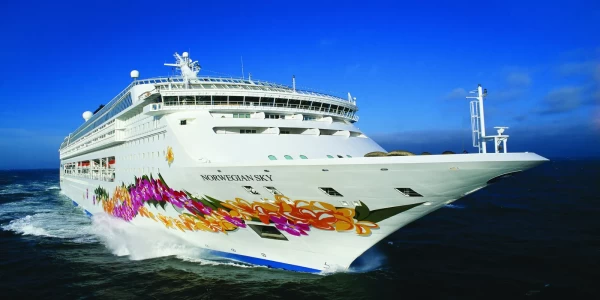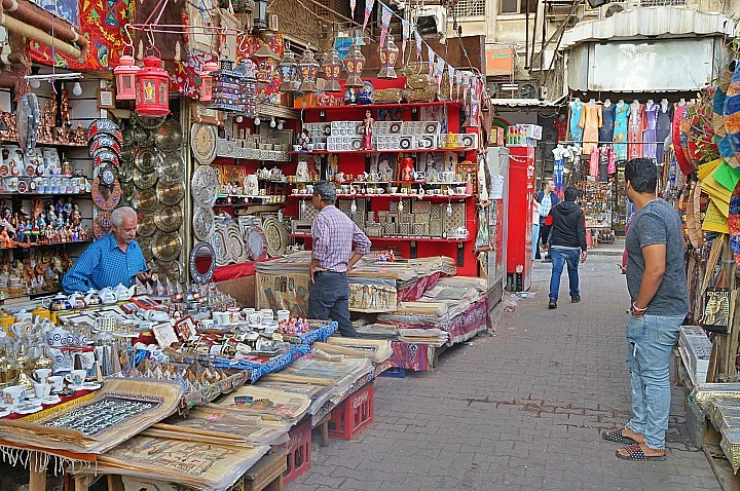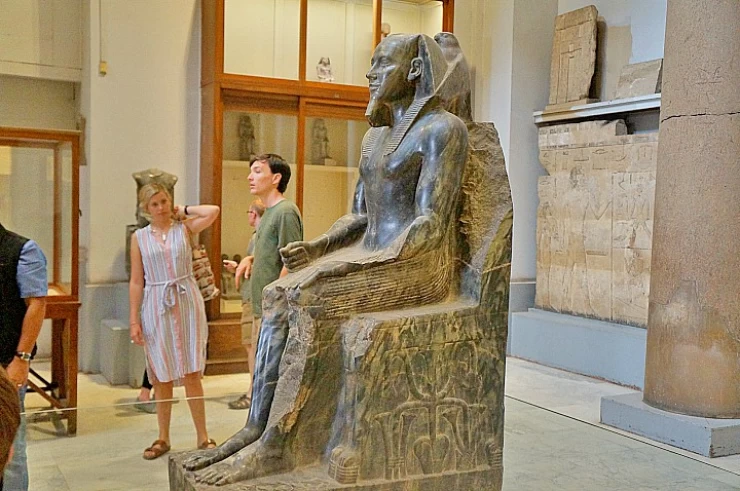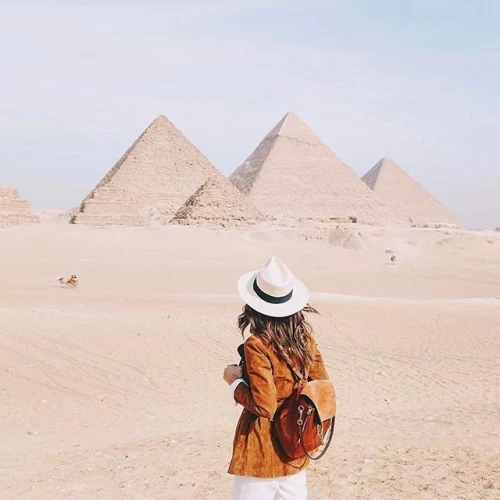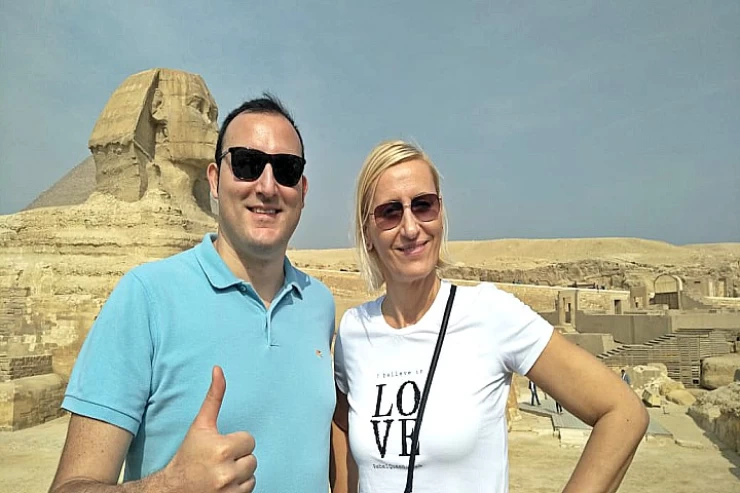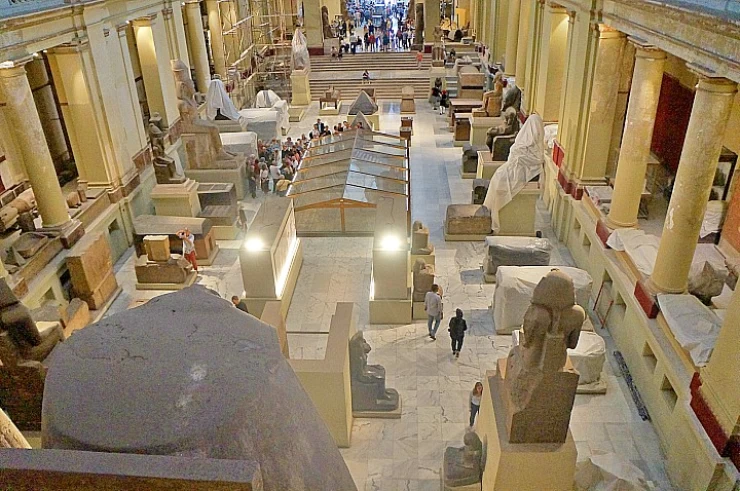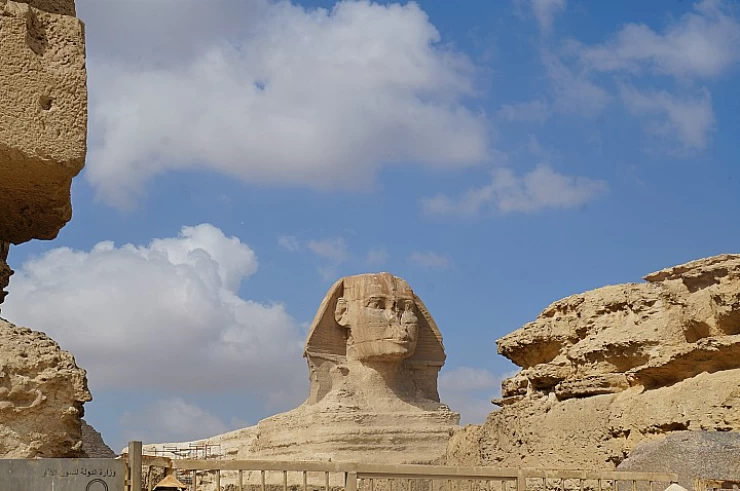
Al-Moez Ldin Allah Al Fatmi
Al-Moez LDin Allah Al-Fatimi assumed the Fatimid Caliphate, succeeding his father Al-Mansur Abi Taher Ismail. Al-Mu’izz was an educated man and his interests were directed toward faith, philosophy, science, and literature. He was fluent in several languages and well-versed in the affairs of the state,
and for this, he was respected and appreciated by statesmen. Al-Mu'izz arrived in Cairo in June 972 AD, and resided in the palace built by "the essence of the Sicilians." On the second day, he went out to receive his well-wishers, and Cairo became the seat of the Fatimid Caliphate, and its subordination to the Sunni Abbasid Caliphate was cut off. Al-Moez followed a new policy in Egypt, to fix what had been spoiled by the revolutions of foreign countries against Egypt.
the mosques of Islamic Egypt are indispensable places that have to be covered by cruise passengers that dock in the various Egyptian ports our Egypt shore excursions can take you to spend quality time in Cairo during Excursions From Sokhna port or even if you only stop in another port we can make it from Port Said shore excursions
Al-Moez focused all his efforts on organizing a new center of his rule, so he took care of financial affairs because the economic situation in Egypt was deteriorating, and Al-Moez prevented the announcement in the streets about the increase in the level of the Nile. Egypt's revenues in his wisdom increased significantly in a short time.
He put his name on the new Egyptian currencies, and he preferred to deal in the dinar, which he put his name on from the Abbasid dinar as an affirmation of Egypt's economic independence from the Abbasid state. Then the value of the Abbasid dinar shrank until it disappeared from the market. He succeeded in building a strong army, uniting the Maghreb under his banner, and extending his influence to southern Italy.
He sent the most efficient leaders of his army, the essence of the Sicilian, to seize Egypt from the Abbasids, so he entered it and established the city of Cairo near Fustat, it was the first capital of the Arabs in Egypt. Al-Muizz Li-Din Allah Al-Fatimid built Al-Azhar Al-Sharif in the Al-Azhar district in ancient Egypt.
He would serve as a literary council for religious discussions and would bring together Muslim, Christian, and Jewish clergy to discuss in a session.
Al-Muizz li-Din Allah spent the period greater than his caliphate in Morocco and remained in Egypt for only about 3 years, and the latent of this period of influence in Egypt, he succeeded in transferring the center of his state to Cairo and established a strong government that brought about a revolution in the religious, social and cultural aspects in Egypt, and made From Egypt, the heart of the Islamic world and a center for spreading its Ismaili call and aspiring to expansion and influence.
The Caliph Al-Muizz Li-Din Allah died in Cairo on December 23, 975 AD.
The vizier Badr al-Jamali constructed the stone walls that house Bab al-Futuh's city gate in the north and Bab Zuweila's gate in the south. These entrances are located along Al-Muizz Street.
Latest Articles
Admin
Seabourn Sojourn Cruise Stops in Safaga Port
The Seabourn Sojourn, the flagship vessel of Seabourn Cruise Line's ultra-luxury fleet, was built in 2008 at the T. Mariotti shipyard in Genoa, Italy. Measuring 198 metres, it can accommodate up to 450 guests in its 225 spacious all-suite staterooms.
Admin
Norwegian Sky Cruise Stops in Safaga Port
Norwegian Cruise Line operates a cruise ship called the Norwegian Sky. It was constructed in 1999 and can accommodate 2,004 passengers in addition to 878 crew members. The ship has several dining establishments, lounges and bars, a spa and fitness center, swimming pools, and a number of entertainment areas.
Admin
Explora II Cruise Stops in Safaga Port
Explora II, the second vessel in the Explora Journeys fleet, sets sail in 2024 to redefine luxury cruising. With 461 ocean-front suites, 9 culinary experiences, and 4 pools, this haven of sophistication and sustainability promises an unforgettable "Ocean State of Mind" journey to inspiring destinations.
Admin
Mein Schiff 6 Cruise Stops in Safaga Port
The Mein Schiff 6 is the latest cruise ship in the renowned TUI Cruises fleet, offering passengers a luxurious and sophisticated cruise experience. At 315 metres long, this floating resort features a range of dining options, entertainment, and recreational facilities, including a spa, fitness centre, and sports amenities.
Admin
Mein Schiff 4 Cruise Stops in Safaga Port
When the Mein Schiff 4 cruise ship docks in Safaga, Egypt, passengers are granted access to a realm of ancient wonders. Aboard this state-of-the-art vessel, guests can embark on meticulously curated shore excursions that showcase the region's most iconic landmarks, including the Giza Pyramids, the enigmatic Sphinx, and the remarkable tombs and temples of the Valley of the Kings in Luxor.
Admin
MS Europa Cruise Stops in Safaga Port
The Silver Moon, Silversea's latest flagship, is a luxury cruise ship that offers an exceptional travel experience for Venezuelans exploring Egypt. With a capacity of 596 guests and an impressive 40,700 gross tonnes, the Silver Moon maintains the small-ship intimacy and spacious all-suite accommodations that are the hallmarks of the Silversea brand.

